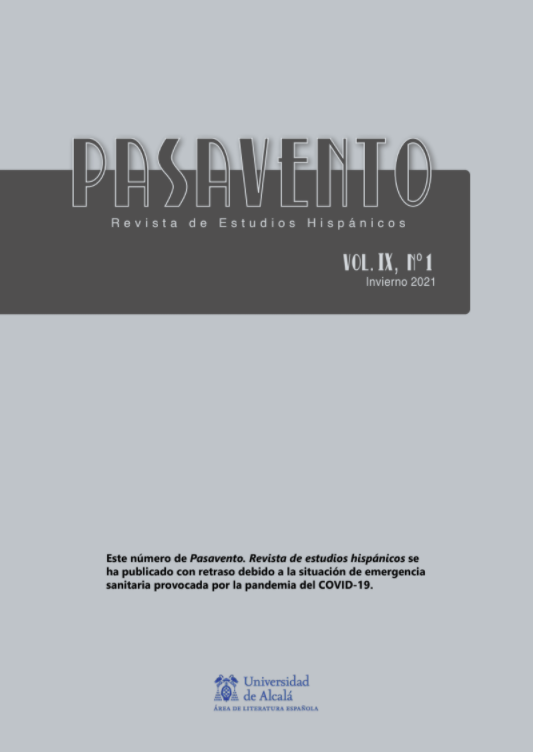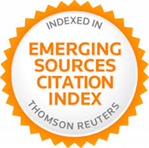Digressión and Alterity: an Analysis of "False Calm" (2005), by María Sonia Cristoff
DOI:
https://doi.org/10.37536/preh.2021.9.1.1089Keywords:
Argentine Literature, María Sonia Cristoff, Drigession, Otherness, ChronicleAbstract
The present work sets out to analyze the chronicles of False Calm. A Tour of the Ghost Towns of Patagonia (2005), by the argentine writer María Sonia Cristoff. Victims of the dismantling of the railway during the last military dictatorship and the privatization policies of the 90s, the southern towns suffer from territorial disintegration. In this article, we observe the way in which Cristoff approaches the relationship between local communities and the nation as an imagined community (Anderson 2003), the representation of otherness from biopolitical (Giorgi 2014) or postcolonial perspectives (Said 2007) and the dispute over cultural hegemony (Williams 2009). In each of these axes, we analyze the digression (Chambers 1994; Echeverría 2005; Oliver 2016; Atkins 2017) as a procedure that allows the drift towards other texts from which the relationship between chronicle and alterity (Todorov 2007) is defined. Furthermore, we propose an analogy between the movement of deviation and integration that all digressive operations entail and the movements of isolation and territorial integration that are presented in the text as community problems.
References
Anderson, Benedict (2003). Comunidades imaginadas. Reflexiones sobre el origen y la difusión del nacionalismo. México: Fondo de Cultura Económica.
Atkins, Rhian (2017). “Preface and Acknowledgements”, en Textual Wanderings: The Theory and Practice of Narrative Digression, ed. Rhian Atkins. Nueva York: Legenda. Modern Humanities Research Association / Routledge.
Bernal, Federico (2005). Petróleo, Estado y soberanía: hacia la empresa multiestatal latinoamericana de hidrocarburos. Buenos Aires: Biblos.
Cristoff, María Sonia (2006). Desubicados. Santiago de Chile: Libros del Laurel.
Cristoff, María Sonia (2009). “El viaje dislocante”, en Pasaje a Oriente. Narrativa de viajes de escritores argentinos, ed. María Sonia Cristoff. Buenos Aires: Fondo de Cultura Económica.
Cristoff, María Sonia (2014). Falsa calma. Un recorrido por pueblos fantasma de la Patagonia. Barcelona: Alpha Decay.
Chambers, Ross (1994). “The Etcetera Principle: Narrative and the Paradigmatic”, French Literature Series, 21: 1-24.
Cuche, Denys (2002). La noción de cultura en las ciencias sociales [1966]. Buenos Aires: Nueva Visión.
Durkheim, Émile (1985). El suicidio. Madrid: Akal.
Echevarría, Ignacio (2005). “Digresión y disidencia”, in La novela digresiva en España. XII Simposio Internacional sobre Narrativa Hispánica Contemporánea. El Puerto de Santa María: Bollullo, 75–82.
Fernández Retamar, Roberto (1971). “Calibán”, Casa de las Américas, 68: 124-151.
Giorgi, Gabriel (2014). Formas comunes: animalidad, cultura y biopolítica. Buenos Aires: Eterna Cadencia.
Guerriero, Leila (2015). Los suicidas del fin del mundo. Crónica de un pueblo patagónico. Buenos Aires: Tusquets.
Jauretche, Arturo (1973). Manual de zonceras argentinas. Buenos Aires: A. Peña Lillo Editor.
Lévi-Strauss, Claude (1958). Anthropologie structurale. París: Plon.
Nouzeilles, Gabriela (1999). “Patagonia as Borderland: Nature, Culture and the Idea of the State”, Journal of Latin America Cultural Studies, 8.1: 35-48.
Oliver, María Paz (2016). El arte de irse por las ramas. La digresión en la novela contemporánea latinoamericana. Leiden/Boston: Brill/Rodopi.
Oliver, María Paz (2018). “Mirar animales: la caminata por el zoológico en Desubicados de María Sonia Cristoff y Paraísos de Iosi Havilio”, Revista de Estudios Hispánicos, 52.2: 617-637.
Quintiliano, Marco Fabio (1887). Instituciones oratorias. Madrid: Librería de la Viuda de Hernando y Ca.
Rodríguez, Fermín (2010). Un desierto para la nación. La escritura del vacío. Buenos Aires: Eterna cadencia.
Rodríguez Pérsico, Adriana (2017). Los unos y los otros. Comunidad y alteridad en la literatura latinoamericana. Buenos Aires: Eduvim.
Said, Edward (2007). Orientalismo. Barcelona: DeBolsillo.
Sarmiento, Domingo Faustino (1952). Facundo. Civilización y barbarie. Buenos Aires: El Ateneo.
Scalabrini Ortiz, Raúl (2001). Política británica en el Río de la Plata [1940]. Buenos Aires: Plus Ultra.
Svampa, Maristella (2010). Civilización y barbarie: de “dispositivo de legitimación” a “gran relato”. Trabajo presentado en Seminario de Mayo “200 años de historia argentina. El difícil proceso de construcción de una nación”. Centro Haroldo Conti, Buenos Aires, Argentina. http://maristellasvampa.net/archivos/ensayo48.pdf [última visita: 18 de enero de 2020].
Svampa, Maristella, y Enrique Viale (2014). Maldesarrollo. La Argentina del extractivismo y el despojo. Buenos Aires: Katz.
Sánchez Idiart, Cecilia (2020). “Entrenar la mirada. La escritura del viaje en María Sonia Cristoff”, Literatura: teoría, historia, crítica, 22.1: 51-69.
Tejero Yosovitch, Yael Natalia (2019). “Miradas sobre el territorio: crónicas de Leila Guerriero y María Sonia Cristoff”, Cahier d’Études Romanes, 38: 67-101.
Todorov, Tzvetan (2007). La conquista de América. México: Siglo XXI.
Vior, Eduardo (2000). “Visiones de Calibán, visiones de América”, CUYO. Anuario de Filosofía Argentina y Americana, 17: 89-103.
Williams, Raymond (2009). Marxismo y Literatura. Buenos Aires: Las cuarenta.
Downloads
Published
How to Cite
Issue
Section
License
Copyright (c) 2021 Pasavento. Revista de Estudios Hispánicos

This work is licensed under a Creative Commons Attribution 4.0 International License.








